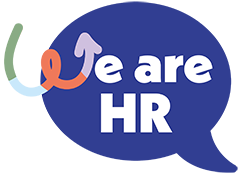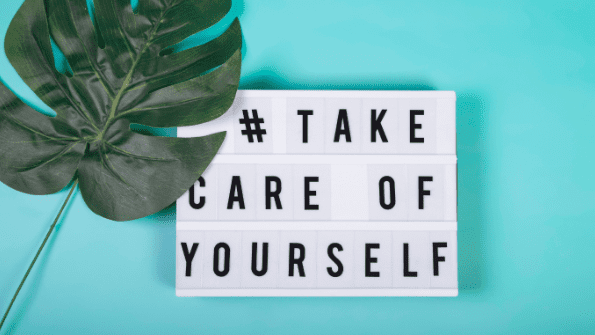Table Of Contents
The recent surge in civil unrest across the UK has presented organisations with unprecedented challenges, demanding a robust and ethical response. At the heart of this response lies the HR department, tasked with balancing legal obligations, employee welfare, and organisational reputation.
The Complexities of Employee Conduct
One of the most pressing issues for HR is how to address employee behaviour outside of the workplace that is in direct conflict with organisational values. While employers have a duty of care to their employees, they also have a responsibility to uphold their organisation’s reputation. When employees engage in violent, racist, or discriminatory behaviour, it can have far-reaching consequences for the company.
- Investigations: HR must conduct thorough and impartial investigations into allegations of employee misconduct, even when the incidents occur outside of work hours. This involves gathering evidence, interviewing witnesses, and following established disciplinary procedures.
- Balancing Privacy and Accountability: Navigating the delicate balance between an employee’s right to privacy and the organisation’s need to maintain a positive image is crucial. Clear policies outlining expectations for employee conduct, both on and off-duty, can provide a framework for addressing such situations.
- Disciplinary Action: If evidence supports allegations of misconduct, appropriate disciplinary action must be taken. This might range from written warnings to termination of employment, depending on the severity of the offence and its impact on the organisation.
Protecting and Supporting Employees
The riots have highlighted the vulnerability of minority employees, who may feel targeted or unsafe. HR has a vital role in ensuring the well-being of all staff members.
- Employee Support: Offering counselling services, employee assistance programs, and flexible work arrangements can help employees cope with stress and anxiety. Creating safe spaces for employees to discuss their concerns is also essential.
- Security Measures: Implementing enhanced security measures, such as increased security personnel or access controls, can help to create a sense of safety for employees.
- Diversity and Inclusion Initiatives: Reinforcing the organisation’s commitment to diversity and inclusion is crucial. This involves providing training on unconscious bias, cultural competency, and conflict resolution.
Building a Resilient Organisation
The aftermath of the riots presents an opportunity for organisations to strengthen their resilience and build a more inclusive workplace culture.
- Crisis Management: Developing a comprehensive crisis management plan can help organisations respond effectively to future disruptions. This plan should include communication strategies, employee support protocols, and business continuity procedures.
- Reputation Management: Protecting the organisation’s reputation is essential during times of crisis. This involves maintaining open and honest communication with stakeholders, including employees, customers, and the public.
- Community Engagement: Building strong relationships with the community can help organisations to be seen as positive contributors to society. Supporting local initiatives and volunteering can demonstrate a commitment to social responsibility.
The Role of Leadership
Effective leadership is essential in navigating the challenges posed by civil unrest. Leaders must demonstrate empathy, compassion, and decisiveness. They should also foster a culture of open communication and collaboration, encouraging employees to share their perspectives and concerns.
By taking a proactive and compassionate approach, HR departments can play a crucial role in helping organisations emerge stronger from these challenging times. It is essential to remember that the impact of these events extends beyond the immediate aftermath, and ongoing efforts to build a more inclusive and resilient workplace are vital for long-term success.
How Can Social-Media be Leveraged for Positive Purposes?
- Utilise social media platforms to share stories of hope and resilience.
- Create online spaces for employees to connect and support each other.
- Partner with community organisations to amplify their messages and initiatives.
- Develop social media campaigns to raise awareness about the impact of violence and promote peace.
By addressing these questions, HR departments can play a crucial role in mitigating the negative effects of social media and fostering a positive impact within the organisation and the community.
HR’s Role in Supporting Mental Health
HR departments can play a crucial role in supporting employees’ mental health during and after the riots.
- Access to Support Services: Providing access to mental health professionals, such as counsellors or psychologists, can be invaluable for employees struggling to cope.
- Flexible Work Arrangements: Offering flexible work arrangements, such as remote work or reduced hours, can help employees manage stress and anxiety.
- Open Communication: Creating a safe and supportive environment where employees can openly discuss their feelings is essential.
- Education and Awareness: Providing employees with information about mental health and coping strategies can help to reduce stigma and encourage help-seeking behaviour.
We-are-HR places workplace well-being at the heart of our mission. We are dedicated to fostering a mentally stimulating and supportive environment for all employees. By providing access to mental health resources, promoting work-life balance, and offering comprehensive training programs, we empower HR professionals to create thriving workplaces.
When you choose We-are-HR as your training provider for CIPD Qualifications, you gain access to a dedicated well-being lead who is committed to supporting our learners’ mental health and overall well-being. Together, we are shaping the future of HR by prioritising employee care and building a more resilient industry.


